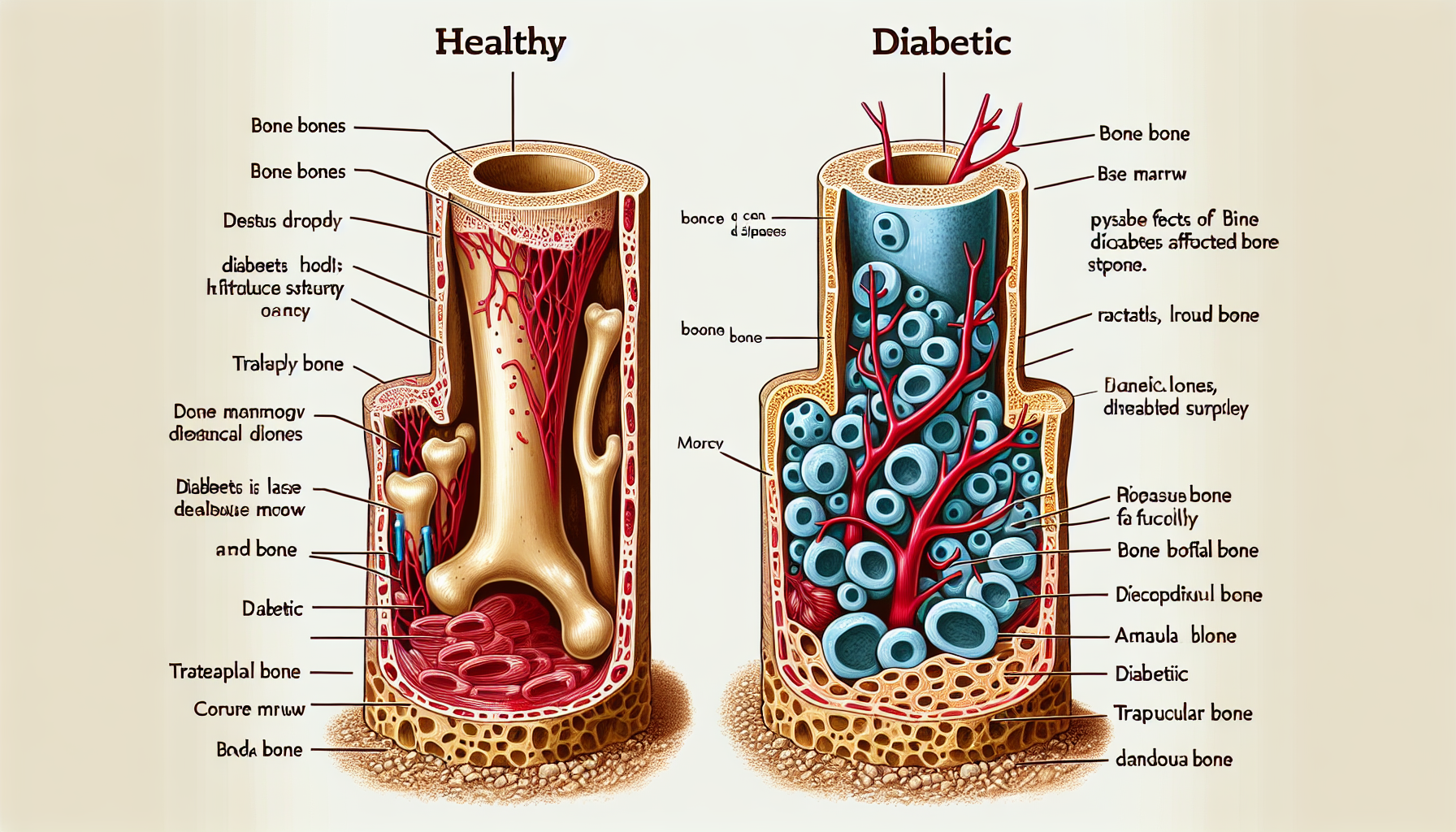Diabetes is a multifaceted disease that affects millions of individuals worldwide, impacting various aspects of health, including bone health. While it is widely recognized for its implications on blood sugar levels and cardiovascular wellness, its influence on bone integrity is an equally important but often overlooked complication. This comprehensive guide delves into the challenges diabetic patients may face with bone health and provides evidence-based strategies to manage and mitigate these risks.
Understanding the Link Between Diabetes and Bone Health
Diabetes can affect the skeletal system in multiple ways. Patients with diabetes have a higher risk of bone fractures and may experience slower healing post-injury. Additionally, type 1 and type 2 diabetes can affect bone density differently. Type 1 diabetes typically leads to lower bone density, while those with type 2 diabetes may have normal or even higher bone density but still have an increased risk of fractures.
The Role of Blood Glucose Control
Elevated blood glucose levels can lead to an accumulation of advanced glycation end-products, which can weaken the collagen within bones. Collagen is essential for the flexibility and strength of bones, and its impairment can lead to brittleness. Therefore, maintaining good blood glucose control is a cornerstone in preserving bone health in diabetic patients.
Nutritional Strategies for Stronger Bones
Diet plays a crucial role in maintaining bone health. Diabetics should ensure adequate intake of nutrients that are vital for bone strength, including calcium, vitamin D, magnesium, and phosphorus. For an in-depth understanding of these nutrients’ roles in bone health, Bone Health and Calcium Utilization: The Role of Vitamin D offers extensive insights.
Besides these, protein intake is also pivotal, as it makes up part of the bone matrix. However, it’s essential to choose high-quality protein sources that don’t contribute to elevated blood sugar levels.
Exercise as a Pillar of Bone Strength
Physical activity is not only beneficial for managing diabetes but also for strengthening bones. Weight-bearing and resistance exercises stimulate bone formation and slow down bone loss. For specific recommendations on exercise routines, refer to The Role of Exercise in Enhancing Bone Mineral Content.
The Impact of Medications on Diabetic Bone Health
Diabetic patients often require medications to manage their condition, some of which can influence bone metabolism. Glucocorticoids, commonly used to treat inflammatory conditions, can lead to bone loss if used for extended periods. The article Understanding the Effects of Medication on Bone Density provides a thorough examination of this topic.
Monitoring and Screening for Early Intervention
Regular bone density screenings can help in the early detection of osteoporosis or a decrease in bone mass, which is crucial for timely intervention. Monitoring Bone Health: The Importance of Periodic Screenings discusses the significance of these screenings in depth.
Advanced Strategies for Bone Health Management in Diabetes
Pharmacological Interventions
When lifestyle adjustments are insufficient, pharmacological therapies such as bisphosphonates, denosumab, or teriparatide may be recommended. These medications help increase bone density and reduce the risk of fractures.
Role of Technology
Continuous Glucose Monitors (CGMs) and Insulin Pumps can help maintain tight blood glucose control, indirectly benefiting bone health. Emerging technologies and therapies continue to provide hope in this area.
External Resources for Further Information
- The International Osteoporosis Foundation offers detailed resources about bone health, specifically tailored for patients with chronic conditions like diabetes.
- Diabetes UK provides specific resources on managing diabetes effectively, which indirectly benefits bone health.
- The National Institute of Diabetes and Digestive and Kidney Diseases contains research and guidelines on diabetes management and its complications, including those related to bone health.
Conclusion
Managing bone health in diabetic patients requires a multifaceted approach that includes diligent blood glucose control, a nutrient-rich diet, regular physical activity, careful medication management, and consistent monitoring. By addressing the unique challenges diabetes presents to bone health, patients can take proactive steps to maintain their skeletal integrity and overall well-being.



